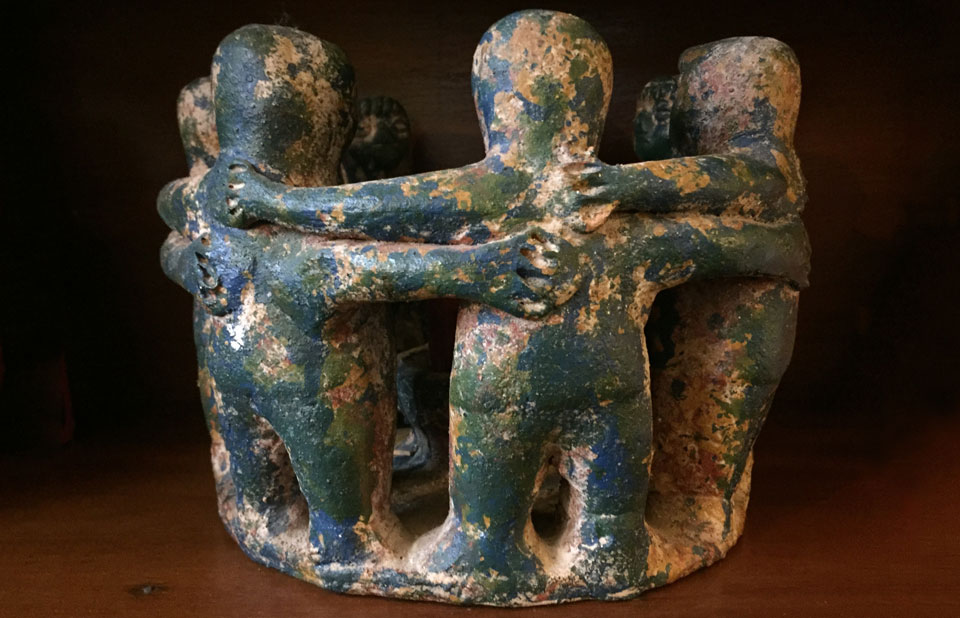The isolating tendency of addicts is insidiously destructive. Showing up and being a “part of,” guards against this isolation and bolsters recovery. In this group experience, you will feel the power of being part of a group, part of a whole. It’s blending of one’s identity into the group, therefore placing “principles before personalities.” The group supports you and also gives you the opportunity to be of service to others. Both are healing.
Each group is run by a licensed therapist and a certified drug and alcohol counselor. Each group takes a specific relevant topic pertaining to recovery (see below.) Each group has a education or enrichment component and a experiential component. A component of each group will be basic education about brain science and how it relates to recovery and our psychology. We often have guest professionals sharing their expertise and or experience. Each group has some mix of grounding exercises, music, yoga/meditation and aroma therapy to add to the over all sensory experiences. We provide you with a journal for you to record new information and reflections. We ask that you come ready to make friends, contribute and deepen your recovery.
Recycle Your Relapse – In this group, you will explore how to dissect the inner springs (triggers) that may result in relapse behavior. In this group there is a focus on Step Ten and the belief that what we really have is a daily reprieve contingent upon the maintenance of our spiritual condition. Through insight, group discussion and meditation, this group is an opportunity to create unique self understandings by studying your, “using behaviors,” and “using attitudes.” By so doing you may be able to lower your relapse risk, and keep your head and heart in recovery. However, no relapse is wasted, they are “recycled.” Relapses are considered valuable recovery lessons. Group members learn from missteps, and construct personalized relapse prevention plans.
Mindfulness Recovery – In this group members will develop strategies for staying out of the past and out of the future. Emotional states, such as anxiety and depression can tamper with anyone’s recovery. Members will experience a introduction to meditation and yoga and learn techniques for addressing stress. In this group we will cultivate natural approaches to decrease these elevated moods, decrease reactivity and develop an inner sanctuary where we can create a quieter mind. We will explore the parallels between 12 steps and Buddhist principles and consider mindfulness techniques, groups and recourses that may lead, strengthen and inform your spiritual program.
“There is no state of “enlightened retirement” Jack Karonfield.
Relationships and Codependency – What is a healthy relationship? Are you addict or codependent? Probably both. Relationships are complex. Most addicts and alcoholics have been practicing destructive patterns of relating, have been exposed to unhealthy or abusive treatment and/or are behind in developing effective relationship skills. We will explore old and new patterns of relating, clarify what healthy boundaries are, and explore what is codependency. In this group the focus is on how to create and sustain healthy relationships, commit to fixing old habits and how to keep the ego out of the driver’s seat.
Dual Diagnosis/Dual Addiction – In this group we will address common miss-understandings and myths related to dual diagnosis. We will offer basic education about how to determine if there is a co occurring diagnosis. We will replace the words, “outside issues,” with “dual diagnosis.” and separate untreated addiction (or a “weak program,”) with actual dual diagnosis. Group members will learn how diagnoses interact and sometimes trigger each other. Lastly we will discuss the struggles associated with dual addictions in the recovery community.
Trauma Recovery – A profound number of individuals who self -medicate with drugs or alcohol have suffered from some sort of trauma, if not multiple traumas. Some of the trauma may have occurred in the addict’s early days, forming some of the beginning vulnerabilities towards becoming chemically dependent, while other traumas may have occurred later in life as a result of the abusive addict lifestyle. With the recovery community, often it’s both. Regardless, unresolved trauma creates a great deal of personal suffering, and contributes to relapse risk. In this group we educate about how the brain “copes” and operates after experiencing trauma, and the signs and symptoms of P.T.S.D. We educate about different techniques to calm a hyper- aroused nervous system (anxiety) and educate our group members about EMDR, a specialized treatment approach available to resolve trauma, live in the present, and put the past in the past.
Lifestyle Recovery – Based on Kevin Griffin’s book, “Recovering Joy,” this group looks at how to create and embrace the joys of living clean and sober. How to evolve recovery, make it meaningful, and joyous for a lifetime. This group looks at developing your unique self, your talents, your interests, and your passions. This group dreams, and plans, and makes road maps for the future. We often have our recovering friends and colleagues come in to share about how “lifestyle recovery” has helped them to establish happy marriages, thriving families, fun hobbies, fulfilling and lasting employment.



